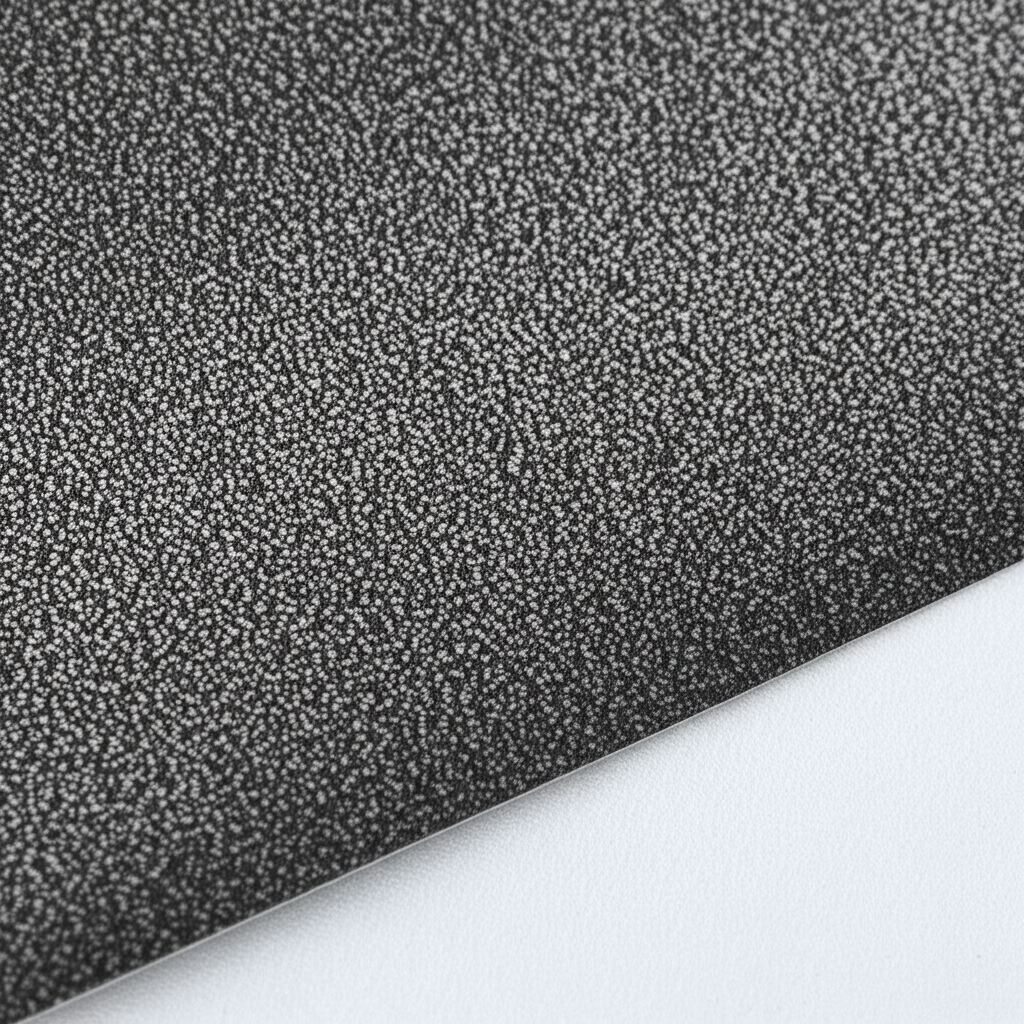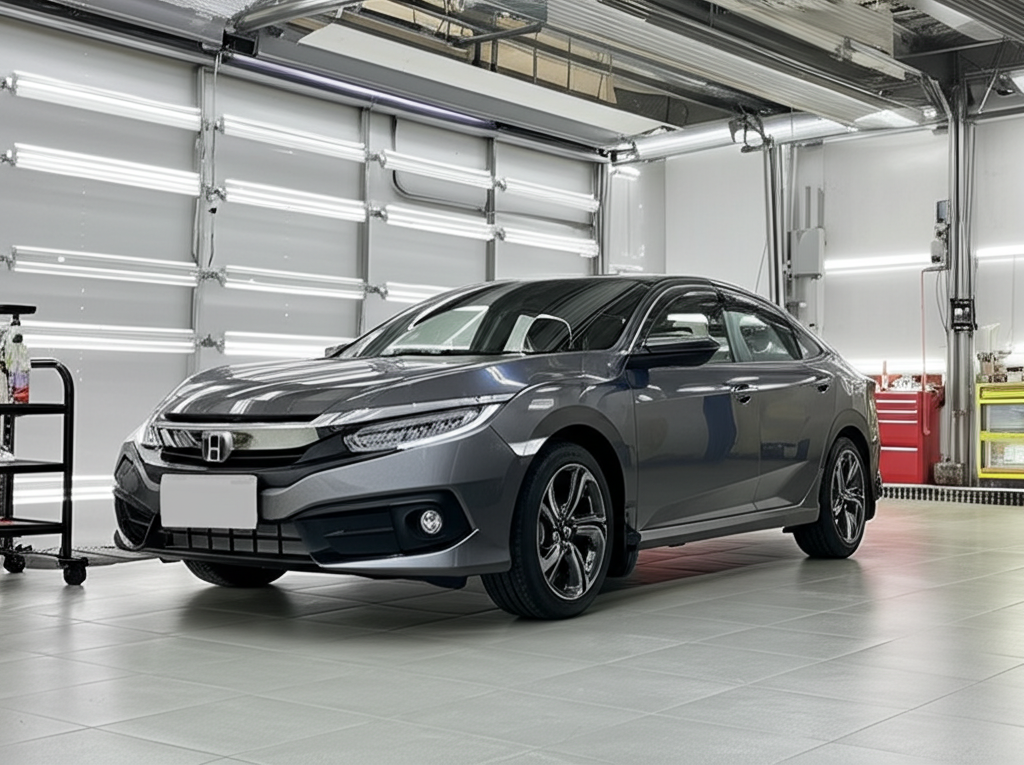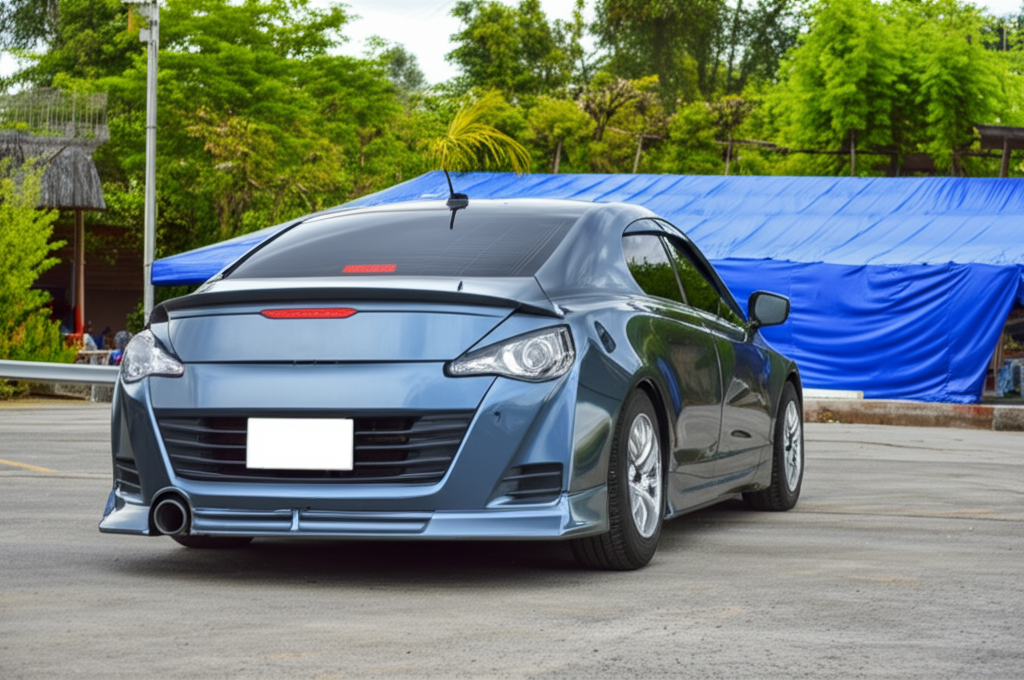Dreaming of giving your car a fresh, head-turning look? Maybe a sleek matte black finish, a vibrant colour change, or just protecting that precious original paint? You’ve probably heard about car wraps, and the term “TPU” likely popped up, often followed by a rather high price tag compared to other options like PVC (vinyl). This can be confusing, especially if you’re working with a specific budget here in Thailand. You want the best for your car, but the fear is real: are you about to spend a fortune on something you don’t truly need, or worse, get ripped off with a low-quality wrap disguised as premium?
It’s a common dilemma. You see stunning wrapped cars cruising around Bangkok, Chiang Mai, or Phuket, and you want that unique style too. But the “sticker shock” associated with Thermoplastic Polyurethane (TPU) films can be a major hurdle. Why is it so much more expensive than standard vinyl wraps? Is the extra cost justified, especially considering Thailand’s demanding climate with intense sun and heavy rains? Let’s break it down, explore the real value behind TPU, and help you decide if it’s the right choice for your car and your wallet.

Meet Somchai: A Budget-Savvy Driver’s Wrap Journey
Let’s consider Somchai, a proud owner of a reliable sedan in Bangkok. He loves his car but felt the factory paint was getting a bit dull, and he was constantly worried about minor scratches from tight parking spots and road debris. He wanted a change, something to make his car stand out subtly, perhaps a deep metallic grey. Initially, Somchai explored budget-friendly options – standard PVC vinyl wraps. The lower price was tempting, fitting neatly into his budget.
However, after doing some research and talking to a few shops, he started noticing conflicting information. Some friends warned him that cheaper vinyl might fade quickly under the relentless Thai sun, could potentially damage the paint upon removal, and offered minimal actual protection against scratches. He saw online examples of wraps peeling at the edges or developing bubbles after just a year or two. The thought of having to re-wrap his car sooner than expected, effectively doubling the cost and hassle, made him pause. He didn’t want to pay less now only to pay more (and deal with more headaches) later. That initial fear of “wasting money on a bad wrap” became very real.

Somchai decided to investigate TPU more thoroughly. He visited a reputable installer who explained the technology: TPU’s self-healing properties for minor swirls, its superior resistance to UV rays, staining (like bird droppings), and chemical etching. They demonstrated how much tougher and more flexible the material was compared to PVC. While the upfront cost was significantly higher, the installer explained the expected lifespan (often 5-10 years with proper care) and the level of paint protection it offered was more akin to Paint Protection Film (PPF), but with the added benefit of colour change. Somchai calculated the potential cost of fixing scratches or dealing with a failed vinyl wrap versus the one-time investment in TPU. He decided the peace of mind and long-term value were worth stretching his budget slightly. He went ahead with a high-quality TPU wrap in satin dark grey. Months later, his car looks immaculate, shrugs off minor abrasions, and he feels confident knowing his original paint is well-protected beneath.
TPU vs. PVC Vinyl: Decoding the Differences
So, what makes TPU stand apart from the more common PVC (Polyvinyl Chloride) vinyl wraps, and why does it command a higher price? It boils down to the material science, manufacturing process, and the resulting performance characteristics.
Here’s a comparative breakdown:
| Feature | TPU (Thermoplastic Polyurethane) | PVC (Polyvinyl Chloride) Vinyl |
|---|---|---|
| Material Composition | Advanced polymer, highly flexible and elastic. Often incorporates self-healing top coats. Chemically stable. | Plasticized polymer. Can be calendared (cheaper, less conformable) or cast (better, more expensive than calendared). Less inherent flexibility than TPU. |
| Durability & Protection | Excellent resistance to scratches, chips, stains (bird droppings, insects, chemicals), and UV fading. Offers genuine paint protection. Often thicker than PVC. | Moderate scratch resistance (varies greatly by quality/type). More susceptible to UV degradation (fading, cracking), staining, and chemical damage over time. Offers minimal impact protection. |
| Self-Healing | Many high-quality TPU films feature a top coat that can self-heal minor scratches and swirl marks with heat (sunlight or heat gun). | Generally does not possess self-healing properties. Scratches remain visible. |
| Finish & Appearance | Often provides a deeper gloss or smoother matte finish, closely mimicking high-quality paint. Less “orange peel” texture. Excellent clarity for PPF versions. | Wide range of colours and finishes available. Quality varies; cheaper films might have more surface texture (“orange peel”) or less clarity. Can look great initially. |
| Conformability & Installation | Highly flexible, conforms well to complex curves without excessive stress or needing relief cuts. Easier installation on intricate parts for skilled installers. | Less flexible than TPU, especially calendared vinyl. May require more seams, patches, or relief cuts on complex curves. Cast vinyl is significantly better than calendared but still less conformable than TPU. |
| Longevity (Lifespan in Thai Climate) | Typically 5-10 years with proper care, maintaining appearance and protective qualities even under harsh sun and rain. | Highly variable. Budget calendared vinyl might last 1-3 years before significant degradation. High-quality cast vinyl might last 3-7 years, but often shows wear sooner than TPU in intense UV conditions. |
| Removal | Generally cleaner removal with less adhesive residue, especially within its expected lifespan. Less risk of damaging OEM paint if high-quality film and professional removal. | Can be more prone to leaving adhesive residue or potentially damaging paint (especially on repainted surfaces or if left on too long / exposed to excessive heat). Quality of adhesive varies greatly. |
| Price Range (Full Car Wrap in Thailand – indicative) | High (e.g., 60,000 – 150,000+ THB). Varies based on film brand, finish, car size, and installer expertise. | Low to Medium (e.g., 20,000 – 60,000+ THB). Wide range depending on whether it’s calendared or cast vinyl, brand, finish complexity, etc. |
| Ideal User | Owners seeking the best possible appearance, long-term durability, superior paint protection, and peace of mind. Willing to invest more upfront for longevity and quality. Values self-healing and resistance to elements. | Budget-conscious owners prioritizing immediate cost savings, frequent style changes, or temporary applications. Suitable for those accepting shorter lifespan and lower protection level. High-quality cast vinyl is a decent mid-range option. |
Essentially, the higher cost of TPU stems from the advanced raw materials, complex manufacturing process (especially for features like self-healing top coats), extensive research and development, and the superior performance and longevity it delivers. It’s engineered to be a protective layer *and* a cosmetic enhancement, whereas traditional PVC vinyl is primarily cosmetic with limited protective benefits and a shorter lifespan, especially in demanding climates like Thailand’s.
Voices from the Road: What Car Owners Say
Don’t just take our word for it. Here’s what some car owners in Thailand shared after choosing TPU wraps:
“I was hesitant about the price of TPU at first. My friend used a cheap vinyl wrap, and it looked okay for maybe six months, then started peeling and fading badly near the roof and hood due to the sun. I paid more for TPU, and two years later, my car still looks brand new. Washing it is easy, small scratches just disappear. It was absolutely worth the extra Baht for the lack of worry.” – Anan, Honda Civic owner, Bangkok
“Living near the coast in Pattaya, the salt air and strong sun are brutal on car paint. I opted for a clear TPU film (PPF) over my original paint. The cost felt high, but thinking about potential repaint costs down the line made it seem reasonable. Now, I don’t flinch when birds decide to use my car for target practice or when grit gets kicked up on the highway. The peace of mind is invaluable.” – Ploy, Toyota Fortuner owner, Pattaya
“I wanted a unique matte blue for my Mazda. I compared high-end cast vinyl and TPU. The installer showed me how much better the TPU laid down on the curves and the self-healing demo sold me. It cost about 30% more than the premium vinyl quote, but knowing it will likely last twice as long and protect my paint better made the decision easier. I love the look and the quality feel.” – Kenji, Mazda 3 owner, Chiang Mai
These experiences highlight a common theme: initial budget concerns giving way to long-term satisfaction and appreciation for the protective qualities and durability of TPU, particularly relevant in Thailand’s environment.
Ready to Invest in Your Car’s Future Look and Protection?
Choosing a car wrap is a significant decision, especially when balancing budget and quality. While TPU film undeniably comes with a higher upfront cost, its superior durability, self-healing capabilities, enhanced protection, and longer lifespan can make it a worthwhile investment rather than just an expense. It addresses the core fear of “wasting money” by offering a solution that lasts longer and performs better, potentially saving you money on repaint jobs or premature wrap replacements down the line.
If you value peace of mind, want the best possible finish, and plan to keep your car looking great for years to come despite the challenges of the Thai climate, TPU is likely the superior choice. If your budget is the absolute primary constraint and you’re prepared for a shorter lifespan and less protection, a high-quality cast PVC vinyl might be a temporary alternative.
Want to discuss your specific needs, get a personalized quote for a TPU wrap for your car model, or see material samples? Contact us today!
📱 Want to learn more about car wrap & paint protection?
Feel free to reach us on LINE:

🌐 Official Website: https://tpuwraps.com
Frequently Asked Questions (FAQ)
- Q: Is TPU wrap completely scratch-proof?
- A: No material is completely scratch-proof. High-quality TPU offers excellent resistance to minor scratches, swirls, and scuffs, and its self-healing properties can make light damage disappear. However, deep scratches or significant impacts can still damage the film (though it often protects the paint underneath).
- Q: Are there “cheap” TPU films? Should I consider them?
- A: Yes, lower-cost TPU options are emerging. However, be cautious. Quality can vary significantly. Cheaper TPU might lack effective self-healing, have poorer clarity or adhesive quality, and may not offer the same longevity or protection as premium brands. Stick to reputable brands and installers to avoid disappointment and potential issues – remember the fear of wasting money on a *bad* wrap applies here too.
- Q: How does the Thai heat and humidity affect TPU wraps?
- A: Reputable TPU films are specifically designed to withstand harsh environmental conditions, including high UV exposure and humidity found in Thailand. They are much more stable than PVC vinyls, resisting fading, cracking, yellowing (for clear films), and peeling when properly installed and maintained.
- Q: Does the price of TPU include installation?
- A: Generally, quotes for full car wraps include both the material and the professional installation labor. Installation quality is CRITICAL for the wrap’s appearance and longevity. Always confirm what’s included in your quote.
- Q: What kind of warranty comes with TPU wraps?
- A: Premium TPU film manufacturers typically offer warranties ranging from 5 to 10 years (or even longer) against defects like yellowing, staining, cracking, blistering, and delaminating. The installer may also offer a warranty on their workmanship. Ensure you understand the warranty terms from both the film brand and the installer.
Conclusion: An Investment in Quality and Peace of Mind
The decision between TPU and other wrap options ultimately depends on your priorities and budget. If you’re looking for the cheapest way to change your car’s colour temporarily, PVC vinyl might suffice. But if you’re seeking a long-lasting, durable solution that not only transforms your car’s appearance but also provides significant protection for your original paint against the rigours of daily driving in Thailand, TPU film stands out as the superior choice.
Think of it less as an expense and more as an investment in preserving your car’s value and appearance, saving you potential headaches and costs in the future. Don’t let the fear of spending money lead you to a choice you’ll regret. Understand the value proposition, weigh the long-term benefits against the initial cost, and make an informed decision. Your car deserves quality protection and a stunning look that lasts.
